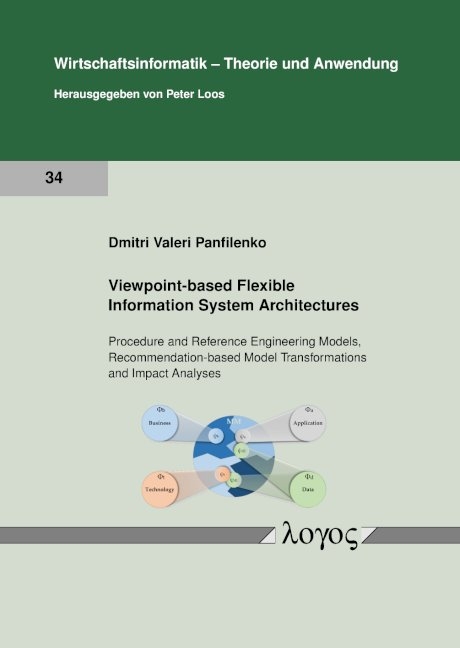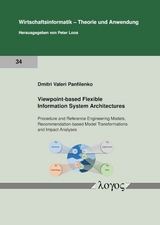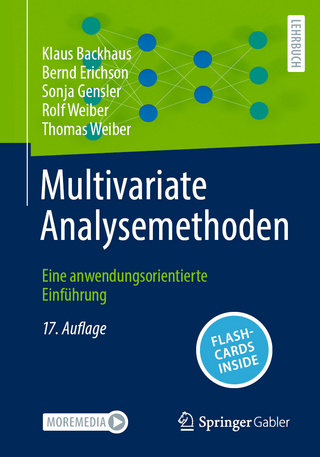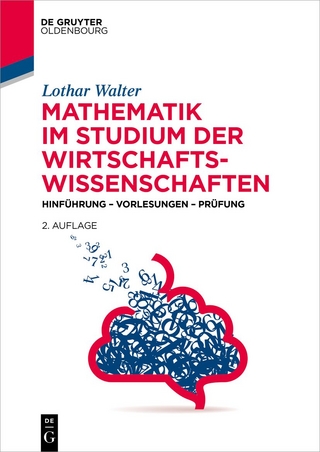Viewpoint-based Flexible Information System Architectures
Procedure and Reference Engineering Models, Recommendation-based Model Transformations and Impact Analyses
Seiten
Information system architecture (ISA) specification as a part of the software engineering field has been an information systems research topic since the 1960's. There have been manifold specification methodologies over the recent decades, developed recently or adapted in order to target the domains of software modelling and legacy systems. Still, there exist considerable issues constituting the need for a flexible ISA development, e.g. incomplete methodology for requirements in model-driven architectures and the lack of qualitative methods for viewpoint definition.
Currently existing methods for ISA specification usually create the target architecture by either addressing only a part of software life-cycles or neglecting less structured information. The method for flexible information system architectures (FISA) specification uses the concept of mediating the domain expert and technical system levels. The FISA-method defines construction and application reference models based on the ANSI/IEEE Standard 1471-2000, viewpoints with model transformations based on OMG-Standard Model-Driven Architecture (MDA), and four different approaches for ISA specification, thus providing for flexibility both in construction and refactoring procedures. The FISA-method analyses the ISA specification method field and constructs comprehensive procedure and reference engineering models for flexible ISA specification. The genericity of the conceived construction and application procedure models of FISA allows for its usage both in research and in industry settings, as presented through illustrative scenarios in steel manufacturing and automotive safety.
Currently existing methods for ISA specification usually create the target architecture by either addressing only a part of software life-cycles or neglecting less structured information. The method for flexible information system architectures (FISA) specification uses the concept of mediating the domain expert and technical system levels. The FISA-method defines construction and application reference models based on the ANSI/IEEE Standard 1471-2000, viewpoints with model transformations based on OMG-Standard Model-Driven Architecture (MDA), and four different approaches for ISA specification, thus providing for flexibility both in construction and refactoring procedures. The FISA-method analyses the ISA specification method field and constructs comprehensive procedure and reference engineering models for flexible ISA specification. The genericity of the conceived construction and application procedure models of FISA allows for its usage both in research and in industry settings, as presented through illustrative scenarios in steel manufacturing and automotive safety.
| Erscheinungsdatum | 05.05.2021 |
|---|---|
| Reihe/Serie | Wirtschaftsinformatik - Theorie und Anwendung ; 34 |
| Sprache | englisch |
| Maße | 170 x 240 mm |
| Einbandart | Paperback |
| Themenwelt | Mathematik / Informatik ► Mathematik ► Finanz- / Wirtschaftsmathematik |
| Wirtschaft ► Allgemeines / Lexika | |
| Schlagworte | Impact Analysis • Information System Architecture • model transformation • Reference engineering model • Viewpoint-based flexibility |
| ISBN-10 | 3-8325-5240-5 / 3832552405 |
| ISBN-13 | 978-3-8325-5240-4 / 9783832552404 |
| Zustand | Neuware |
| Haben Sie eine Frage zum Produkt? |
Mehr entdecken
aus dem Bereich
aus dem Bereich
eine anwendungsorientierte Einführung
Buch | Softcover (2023)
Springer Gabler (Verlag)
49,99 €
Buch | Softcover (2023)
De Gruyter Oldenbourg (Verlag)
29,95 €




